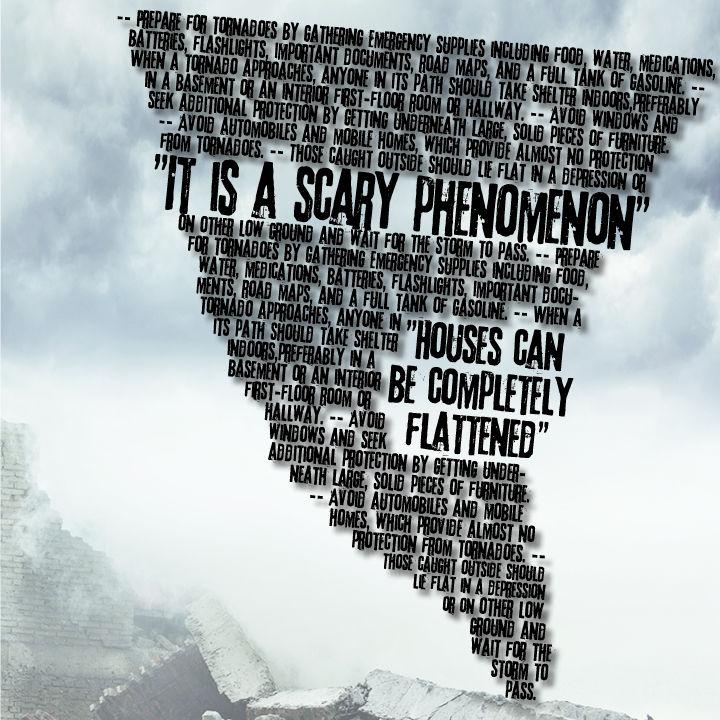Seek Shelter Immediately: Renters face safety challenges when severe weather looms
June 18, 2014
Ames residents got an early taste of Midwest summer weather on the last weekend of the spring semester. Many residents know that the best place to go during a summer storm is low to the ground and away from windows, but not all rental properties provide this option.
According to the National Weather Service, Iowa experiences about 50 tornadoes each year, with most of them occurring between March and July, peaking in June.
There have been 13 tornadoes in Iowa so far this year. On April 27, a tornado that touched Wapello, Keokuk, Iowa and Johnson counties resulted in two fatalities due to outbuilding damage.
On May 11, storms featuring a torrential downpour, quarter-size hail and 60 mile-per-hour wind gusts blew through Ames, and a “severe thunderstorm capable of producing a tornado” was located seven miles southwest of Ames, according to the Iowa Weather Network.
The National Weather Service issued a tornado warning until 11:15 p.m. and news sources urged viewers to seek shelter.
Sirens had gone off when Joey Charlson, senior in management information systems, heard knocking at the door of his basement apartment on Tripp Street. About 15 people from higher-level rooms in his complex gathered in his apartment for 30 minutes to wait out the storm.
“People were freaking out,” Charlson said.
The guests turned on the TV and watched weather reports. Some students were worried about the wind and lightning.
“I’m just lucky I live in an apartment with a basement,” Charlson said. “A lot of apartments around here don’t have safety shelters.”
Cinzia Cervato, professor of geological and atmospheric sciences, said that houses can be completely flattened, so she recommends leasing a place with shelter.
“Make sure of the presence of a tornado shelter before you move in or rent,” Cervato said.
She also said that some basements are very open and people should make sure that there is adequate protection away from windows.
“They need to know the risks and not be surprised in the night when [severe weather] happens,” Cervato said.
Charlson’s apartment did not come with set severe weather procedures, but he said that it was nice having a place for people to come and be safe.
“It would be nice if they’d include safety precautions in leases,” Charlson said.
When sirens sound, a plan of action to stay safe will be different with differing property types.
“We have 22 buildings, and all of them are different,” said Ben Wichtendahl, leasing coordinator for Campustown. “Company-wide, we keep residents safe.”
He said that the parking garages below the buildings in Campustown are the safest place to go. In the buildings without lower-level parking, he said that tenants should go to the inside of the lowest level and avoid glass.
“Don’t be that guy outside trying to film it for YouTube,” Witchendahl said. “It won’t end well.”
The National Weather Service issues both tornado watches and tornado warnings. A watch is issued if the conditions for severe weather exist and a warning is issued if severe weather is imminent.
Being from Iowa, he said that he knows storms, but he also knows that not all residents are familiar with Iowa weather. Some tenants have asked about what to do in the event of a tornado.
“We got a couple phone calls and I went, ‘OK, not everyone’s from Iowa. Not everyone’s familiar with severe weather,’” Witchendahl said.
Campustown, in an effort to raise awareness, sends out safety tips in its monthly newsletter and posts them on its Facebook page.
Wichtendahl said that Campustown is concerned with keeping residents and the public safe, and that if there was public interest in a severe weather safety education session, it would be “more than happy” to hold one at The Resort.
Apartments at The Grove are not connected by interior hallways and tenants must go down outdoor stairs to get to a lower level. Spokespersons from both the local and national offices at The Grove said it was against their policy to comment on how residents would find shelter in a storm.
Laura Kilbride, community manager of University West Properties, said residents living in Bird/Celtic should go to interior hallways. Those living on the second floor of Fieldstone should also go to the Bird hallways. Those on the first floor of Fieldstone, Fieldstone Grand and Steinbeck are suggested to go to the basement or an interior room such as the bathroom or closet.
Residents on the upper floors of Fieldstone Grand and Steinbeck should take shelter behind the stairs on the first floor. Kilbride said Mortensen Place residents are safest in the basement garages and stairwells; townhouse residents are welcome to this area, but they should stay in an interior room if they do not want to go outside.
An employee of First Property Management said that residents should follow standard procedures for tornado safety and stay tuned in to the news.
Tenants of Hunziker Properties are able to come to the office if they have questions concerning their specific building’s safest shelter, an employee said.
Cervato said that there is more to severe weather threats than just tornadoes and that it is important to be informed about these hazards.

















